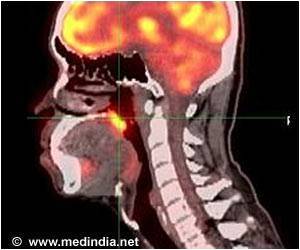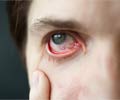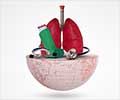- Allergy (Allergies) - (http://www.medicinenet.com/allergy/article.htm)
- Allergies - (http://www.nhs.uk/conditions/allergies/pages/symptoms.aspx)
About
An allergic reaction may be mild or severe. It usually involves the skin, respiratory system, eyes, digestive system or blood pressure.
An allergy can be caused by exposure to anything and everything under the sun, including the sun. For example, pollen in the air can cause allergy and result in a runny nose. Excess sunlight may cause allergic reactions of the skin. One important fact to note here is that a substance causes allergy in only some individuals. Thus, what determines if a person is likely to suffer from allergies is not only the allergen but the way the immune system deals with the external substance. Hereditary or genetic factors play an important role in determining if a person is likely to be allergic or not.

People with allergies react with the allergen to form a particular type of antibody called IgE. IgE brings about the release of histamine and other mediators of allergy in the body, which cause the symptoms of allergy.
Symptoms that could suggest that a person is suffering from an allergic reaction are:
Symptoms related to the skin: The skin is among the most common organs that mirror the symptoms of an allergic reaction. Allergic skin reactions vary from mild to severe. Mild skin reactions include itching and rashes over a part or all over the body. Itchy swellings called hives may occur (An example of a small hive is following a mosquito bite). Severe reactions could involve swelling of the skin and mucus membranes. The skin may develop blisters with oozing. The mucus membranes of the throat could be affected resulting in suffocation. This condition is referred to as angioedema.
Symptoms related to the respiratory system: A person with allergy suffers from repeated sneezes, and an itchy and runny nose. In more severe cases, the person may suffer from wheezing or an asthmatic attack. Thick secretions and cough usually denote an infection and are not characteristic of an allergy.
Symptoms related to the eyes: The conjunctiva or the tissue lining the eyes is affected during allergies resulting in allergic conjunctivitis. The eyes appear red, watery and itchy.
Symptoms related to the digestive system: Allergies to food can cause cramps, vomiting and blood in stools.
Symptoms affecting blood pressure: In certain severe allergic reactions called anaphylactic reactions, the blood pressure of the person falls rapidly following exposure to the allergen. The reaction may be accompanied by other symptoms like hives, swelling of the throat, stomach pain and wheezing. The condition is a medical emergency and is fatal if the person is not treated immediately.
Types
Allergy can occur to anything in a person’s environment. Some of the causes of allergy are listed below.
Some of the more common allergic reactions are described below:
Dust or Pollen Allergy: Symptoms of dust allergy are usually seen when the person is exposed to excessive dust. These symptoms usually appear throughout the year. On the other hand, pollen allergy occurs during seasons like spring where the pollen levels in the atmosphere are high. Symptoms are usually located in the respiratory tract and eyes and include itchy and watery eyes, sneezing, nasal itching, runny nose and throat clearing due to postnasal dripping of secretions. The nasal symptoms caused by pollen allergy are usually referred to as hay fever or allergic rhinitis.
Mold Allergy: Mold that grows in damp areas of the house like bathrooms could give rise to respiratory and skin symptoms of allergy.
Pet Allergy: Allergy could also occur to pets like cats and dogs in the house. Symptoms are usually related to the respiratory tract. People allergic to pets should avoid pets in their bedrooms. They should also regularly clean the house and wash their hands.
Medication Allergy: Nearly every medication can cause an allergic reaction, which could be mild like hives or severe like an anaphylactic reaction. Among medications, the penicillin group of antibiotics, aspirin-like medications, and ACE inhibitors are particularly implicated in causing allergies. Allergies to medications usually manifest as skin reactions. Severe anaphylactic reactions or angioedema may occur in some cases, especially when the medication is injected. Vaccines are also known to cause allergy.
Food Allergy: Food allergy may start as swelling in the tongue and throat and may be followed by stomach cramps and diarrhea. In some cases, symptoms may include breathlessness and skin reactions like hives. Foods that commonly cause allergy include cow’s milk, shellfish, peanuts, eggs, soy, tree nuts, tomatoes and wheat. Children may sometimes outgrow their allergies at an older age.
Poison Ivy or Oak: Poison ivy or oak results in skin reactions following contact with the skin. This condition is referred to as contact dermatitis. The patient suffers from itchy rashes. The skin may also develop blisters that ooze.
Latex Allergy: Some people develop allergy to latex or rubber. Health-care workers are often affected due to the use of rubber gloves. People with latex allergy usually develop skin reactions. Rarely, severe reactions may be observed.
Insect Sting Allergy: An insect sting like a bee sting can cause a mild allergic reaction at the site of the sting. This reaction includes itching, redness and a small swelling. Severe allergic reactions can develop in some individuals like difficulty in breathing, wheezing, fall in blood pressure, and swelling of the tissues around the throat.
Environmental Factors: Environmental factors like excessive heat and cold can cause allergies. Some medications can increase the sensitivity of the skin to the sun resulting in allergic reactions.
Frequently Asked Questions
1. Which doctor should I visit in case I suffer from allergy?
You should visit an allergist to get treated for your allergy. In case you suffer from a serious attack, you should visit the emergency at the earliest.
2. Are antihistamines effective in treating allergies?
Histamine is released initially in an allergic reaction; hence allergies are usually treated using antihistamines. In some cases especially serious cases, corticosteroids are required to treat the allergy.
3. What do I give my child if she/he is allergic to milk?
Some babies are allergic to cow’s milk but they do not react to breast milk from the mother. Thus, breastfeeding is perfectly safe in a child with milk allergy. In some cases, the mother may have to stop taking in milk products during breastfeeding to avoid passage of the


















